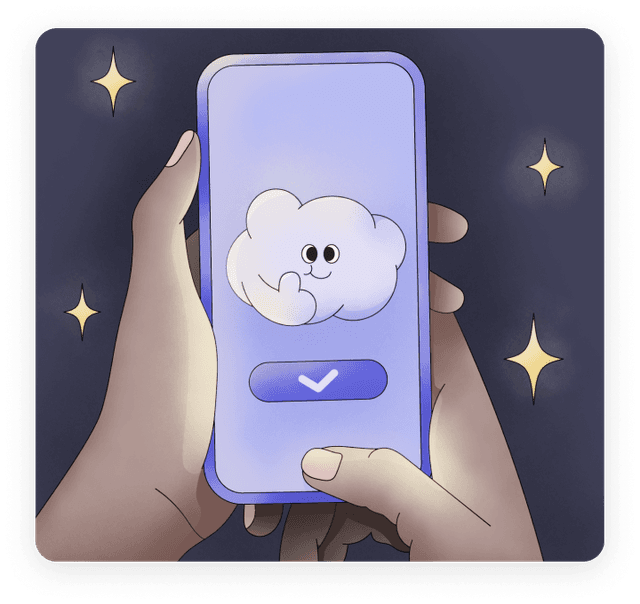
Denys Chumak
15 Mar 2024
Can You Have Dreams While in a Coma?
Introduction
In our journey through life, we often encounter situations that leave us feeling lost, unloved, and in search of guidance. For those with unresolved emotional issues, dreams hold a special place, providing a gateway to the subconscious mind. But what about people who dream in a coma? "Do you dream when in a coma? It's a fascinating question about the unconscious mind during a state of profound rest."
In this blog, we delve into the captivating realm of coma dreams and explore the possibility of their existence. Join us as we embark on an extraordinary exploration that may shed light on the connection between dreams and our unconscious mind.
What is Coma?
Before we dive into the fascinating world of coma dreams, it is crucial to understand what a coma truly is. Coma is a profound state of unconsciousness where individuals are unresponsive and unaware of their surroundings. It is caused by severe brain injuries or other medical conditions. While it is easy to assume that individuals in a coma would not have any form of mental activity, research has shown otherwise. Even if their awareness changes a lot, it doesn't mean they have no feelings or thoughts inside them.
Causes of Coma
Let’s explore the causes of coma:
Physical Trauma:
Severe head injuries resulting from accidents, falls, or assaults can disrupt the normal functioning of the brain. The brain's delicate structure may be damaged, leading to a loss of consciousness. It's really important to be careful and take steps to avoid getting hurt, and if you do get hurt, it's really important to get medical help right away.
Stroke:
A stroke happens when the blood flow to a part of the brain gets blocked or interrupted. This interruption can be caused by a blood clot or a ruptured blood vessel. When a stroke affects a critical region of the brain responsible for consciousness, it can result in a coma. Knowing how to identify the chances of a stroke and getting immediate medical help can prevent serious problems.
Severe Infections:
Certain infections can have severe effects on the body, including the brain. Bacterial or viral infections such as meningitis or encephalitis can lead to inflammation and swelling in the brain, impairing its normal functions. Sometimes, this can cause a person to go into a deep sleep called a coma. Vaccinations, maintaining good hygiene practices, and seeking timely medical treatment for infections are essential for reducing the risk.
Metabolic Imbalances:
Our bodies rely on a delicate balance of various chemicals and substances to function properly. Any disruption in these balances can have serious consequences, including coma. Conditions such as diabetic ketoacidosis (DKA), liver failure, or kidney dysfunction can lead to metabolic imbalances that affect brain function. Managing these underlying conditions through proper medical care and lifestyle choices is crucial.
Drug Overdose:
Substance abuse, including the misuse of prescription medications or illegal drugs, poses a significant risk of coma. Overdosing on drugs can overwhelm the brain and central nervous system, impairing consciousness. Raising awareness about the dangers of drug misuse and seeking help for addiction are vital steps in preventing such incidents.
Exploring the Dreaming Mind
Dreams have long fascinated both scientists and spiritual individuals alike. They offer a glimpse into our subconscious, a landscape where symbols, emotions, and experiences intertwine. Dreams are really useful for understanding our feelings and giving us advice when we're awake. They help us think about ourselves and figure out what's going on inside us. It is natural to wonder if this mystical realm can extend its reach to those in comas.
Can People Dream in a Coma?
"Do you dream in a coma? It remains an intriguing question about the state of consciousness during prolonged unconsciousness."
Many people who wake up from comas have said that they had dreams where they saw things from the outside world. Some have had dreams that felt long. Whether or not someone can dream while in a coma depends on their medical condition; if the part of the brain responsible for processing visual information is injured, they won't be able to remember dreams with images.
Similarly, if the part of the brain that processes sound is severely damaged, they won't be able to hear voices in their dreams. If the part of the brain responsible for controlling sleep and wakefulness, known as the reticular activating system, gets damaged, people won't have regular dreams like usual. However, they might still have other experiences similar to dreaming.
The Significance of Coma Dreams
For those seeking guidance and meaning, the idea that coma dreams exist can be comforting. Dreams have long been regarded as a source of insight and wisdom, offering guidance in our everyday lives. If individuals in comas can indeed dream, it opens up the potential for them to access their unconscious mind, just like those who are awake. This realization brings hope and the possibility of finding a resolution for unresolved emotional issues even while in a comatose state.
Lucid Dreams vs Coma Dreams
There is no proof that you can have lucid dreams while in a coma. Coma dreams can be very clear and realistic, meaning the dreamer can be fully aware and conscious of the dream. However, the dreamer is often so engrossed in the dream that they don't realize they are dreaming.
Technically, these coma dreams can be considered lucid dreams (based on our definition of lucid dreaming) because the dreamer is aware of them. However, they are not the kind of lucid dreams we commonly talk about today.
In the past, the term "lucid dreaming" was used to describe vivid dreams, but now it refers to dreams that are consciously controlled. Therefore, even though coma dreams can be vivid and feel like real life, with the dreamer being mentally "awake" in the dream, it's not the same as lucid dreaming. We use the term "lucid dreams" to describe vivid, lifelike dreams that are consciously controlled.
The difference between coma dreams and lucid dreams
Lucid dreaming and coma dreaming have two main differences:
Lucid dreaming happens during regular sleep, and the dreamer can wake up from it. Coma dreaming occurs when a person is in a state where they cannot be awakened.
In lucid dreaming, the dreamer has control over their dream and is aware that they are dreaming. On the other hand, coma dreaming is just as vivid as lucid dreaming, but the dreamer lacks the same level of conscious control and may not realize that they are in a dream.
While the state of consciousness between a person in regular sleep and someone in a coma is different, there are other important distinctions between these two types of dreams.
Conclusion
Coma remains a complex and often unsettling phenomenon, affecting individuals from all walks of life. By understanding its various causes, we can promote prevention, prompt treatment, and enhance overall awareness.
Whether you are on a spiritual journey, seeking emotional healing, or finding solace in dream analysis, remember to prioritize your well-being and take necessary precautions to avoid situations that can lead to coma.
"Do people in comas dream? The answer to this intriguing question lies at the heart of understanding the mysteries of the unconscious mind." Whether it be finding healing, resolving emotional issues, or seeking guidance, the DreamApp holds the potential to unlock the transformative power of dreams in our lives.
FAQS
Can you dream in a coma?
Yes, people in a coma can experience dreams, although scientific research on this topic is limited.
Are coma dreams similar to regular dreams?
Coma dreams, if they occur, may differ from regular dreams. They can hold symbolic representations and metaphors that reflect deeply rooted emotions and experiences.
Do all comatose individuals dream?
Not all comatose individuals necessarily experience dreams. The occurrence of dreams during a coma varies from person to person and is not universally observed.
Can dream analysis be applied to coma dreams?
Dream analysis can potentially be applied to coma dreams. Interpretation tools, like DreamApp, may help uncover hidden meanings and provide insights into the individual's subconscious state.
Can exploring coma dreams aid in healing and self-discovery?
Exploring coma dreams, if they occur, can provide a path for healing and self-discovery. Analyzing these dreams may assist in processing emotions, resolving issues, and gaining a deeper understanding of oneself.
Did you have an unusual dream with this symbol?
Let's analyze this dream with our expert!
At least five words, please.

Your dreams are completely private
Take control of your dream emotions in the free mobile app



The most recent users' dreams
Go to the user dreams page
Dream App
Free dream interpretations

(1,213)











